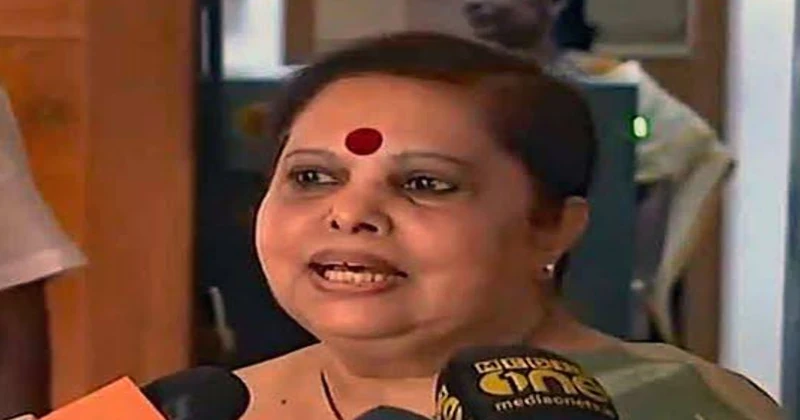The long-awaited release of the Justice K Hema Committee report has sent shockwaves through Kerala’s Malayalam film industry, popularly known as Mollywood. The report, which has been kept under wraps since its submission to the Kerala government in December 2019, paints a grim picture of the working conditions faced by women in the industry. It confirms the worst fears of many: Mollywood is in the grip of a powerful all-male ‘mafia’ that perpetuates the casting couch culture and systemic exploitation of women.
The report reveals that Mollywood is dominated by a mafia comprising around 15 influential figures—producers, directors, actors, and production controllers—who operate with near-total control over the industry. This group, often referred to as the ‘mafia,’ dictates who gets cast in films, and their decisions are driven not by talent or merit but by a sinister agenda that often includes coercing women into providing sexual favors. The mafia’s control extends beyond just casting.

They have the power to make or break careers, using their influence to ensure that those who do not comply with their demands are systematically blacklisted. Women who resist or speak out against the mafia face severe repercussions, including loss of work, harassment, and, in some cases, being forced out of the industry entirely. The Justice K.
Hema Committee, established in response to a petition filed by the Women in Cinema Collective (WCC), was tasked with investigating the challenges faced by women professionals in Mollywood. The committee, which included veteran South Indian actress Sarada and former bureaucrat K B Valsala Kumari, conducted extensive interviews with actresses, technicians, and other women in the industry. Their testimonies revealed a pervasive culture of sexual exploitation, coercion, and intimidation.
“The women working in the Malayalam film industry are forced to provide sex on demand at shooting locations. Otherwise, they would be punished and harassed by the all-powerful mafia,” the report states. This mafia, comprising approximately 15 prominent producers, directors, actors, and production controllers, wields significant influence over the industry.
They determine who gets roles and who is blacklisted, leaving women with little choice but to comply or face the destruction of their careers. The report details the various tactics used to pressure women into providing sexual favors. “Production controllers often indicate to lead or supporting actresses that they should be ready for ‘adjustments’ or to ‘please’ the director, producer, or lead actor.
These adjustments are understood to mean sexual favors,” the report explains. Women who refuse to comply are often subjected to mental harassment on set. One actress testified that she was forced to repeat a lip-locking scene 17 times by a director as punishment for complaining.
To her dismay, the scene was not even included in the final cut of the film. The harassment continues off-set as well, with women reporting that men would knock on their hotel room doors late at night. The report exposes the deep-rooted power of the mafia in Mollywood.
This small group of men not only controls casting decisions but also influences the broader dynamics of the industry. Their influence extends beyond films, as they can block opportunities for those who challenge them, even in television. The report also hints at the mafia’s involvement in ruining the careers of male actors who dare to stand up against them.
A reference is made to a talented veteran actor, believed to be the late Thilakan, who was blacklisted in the industry for challenging the mafia’s authority. Thilakan, a renowned method actor who appeared in over 200 Malayalam films, faced professional isolation before his death in 2012 at the age of 77. The release of the Hema Committee report has been hailed as an “eye-opener” by the Women in Cinema Collective.
Beena Paul, a founding member of the WCC and a noted film editor, expressed cautious optimism. “Our collective had demanded that the dark forces controlling the film industry be exposed. We are happy that our attempt has been half-successful.
Now it’s for the government to act,” Paul said. The report’s findings demand a moment of deep introspection for Mollywood. The Association of Malayalam Movie Artists (AMMA), in its initial reaction, stated that it needed time to review the report’s findings.
However, the revelations in the report have placed significant pressure on the Kerala government to take decisive action to dismantle the mafia’s grip on the industry and create a fair and safe environment for women professionals. The opening paragraph of the report poetically encapsulates the disillusionment with the industry: “The sky is full of mysteries, with the twinkling stars and beautiful moon. But scientific investigation has revealed that stars do not twinkle and the moon may not be as beautiful as it seems.
” The stars in Mollywood, once revered, have indeed fallen, revealing an industry in urgent need of reform. The Justice K. Hema Committee’s findings have placed the Kerala government under immense pressure to act.
The report’s release is a call to dismantle this mafia’s influence and to restore fairness and justice in the Malayalam film industry..



















